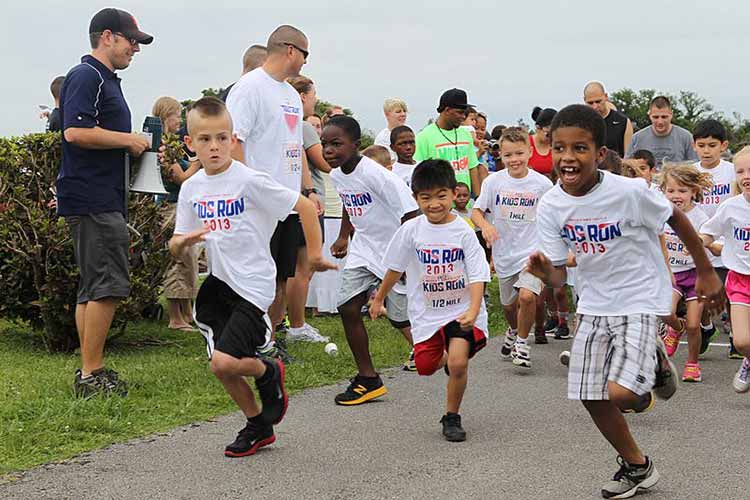Blogs: CDC releases guideline for handling childhood concussion

The United States' Centres for Disease Control and Prevention (CDC) has released the "first broad evidence-based recommendations for diagnosing and treating children's concussions," according to the Associated Press. The release comes just months after Rowan's Law, an initiative heralded by some brain injury lawyers as a blueprint for other Canadian provinces, came into effect in Ontario. The CDC guideline's broad focus sets it apart from previous efforts in this area. Rowan's Law and directives from the American Academy of Neurology and the American Academy of Pediatrics concentrate on sports injuries; the CDC publication also addresses slip-and-fall injuries and injuries from motor vehicle accidents. Of course, sports remain a focus. As CDC brain injury specialist Matthew Breiding, one of the guideline's co-author_ids, told the Associated Press: "Some children and teens think concussions aren't serious or worry that if they report a concussion they will lose their position on the team or look weak. Remind them that it's better to miss one game than the whole season." The guideline is based on a comprehensive evaluation of 25 years of scientific research and includes only procedures with the strongest evidence of success. For instance, the CDC reminds parents not to rely on X-rays or CT scans to diagnose concussions and warns that blood tests aren't reliable, either. When a concussion is diagnosed, it recommends three days of rest from physical and mental activity (school; sports) and assures parents that symptoms will fade within three months in most cases. As the Journal of the American Medical Association (JAMA) notes in the abstract for the guideline, "mild traumatic brain injury (mTBI), or concussion, in children is a rapidly growing public health concern because epidemiologic data indicate a marked increase in the number of emergency department visits for mTBI over the past decade." Indeed, some estimates suggest as many as 1-million American children experience concussions each year. In Canada, concussions and possible concussions account for almost 65 per cent of all sports-related head injuries among children and youth. Childhood concussions are a serious issue across North America, and brain injury lawyers are encouraged to see lawmakers and governmental bodies invest in education and awareness. If you or a member of your family has suffered a brain injury of any severity - from a concussion to a TBI - don't hesitate to contact Neinstein Personal Injury Lawyers today to learn how we can help. Our experienced team of brain injury lawyers can assess the viability of your claim and provide guidance and advice as you seek compensation.
Category Selector
Select a category relevant to you.
- Social Host Liability
- Tort
- Spinal Injury
- Road Safety
- Slip and Fall Claims
- Snowmobile Accident
- Product Liability
- Rail Accidents
- Recalls
- News
- Nursing Home Negligence
- Personal Injury
- Physical and Psychological Injuries
- Negligent Supervision
- Neinstein in the Community
- Medical Malpractice
- Motorcycle Accidents
- Long Term Disability
- Chronic Pain
- COVID-19
- Dog Bites Claims
- Events
- General
- Homeowner Liability
- JUUL & Vaping
- JUUL Vaping Lawsuit
- Lawyer Profile
- Legal News
- Legal Representation
- Liability
- Long-term Care
- Blogs
- Boating Accident
- Brain Injury
- Car Accident
- Accident Benefits Claims
- Auto Insurance
- Bicycle Accidents
- Water Accidents
- Wrongful Death
- In the Community
Area of Expertise
Brain injury
Injury to the brain can occur in a variety of ways and is often devastating. We understand how difficult it is to navigate the consequences of an acquired brain injury. Whether you or your loved one has suffered a stroke, a surgical complication, or any other medical error resulting in brain injury, our team has the knowledge and experience to help victims secure compensation for their future. Neinstein works closely with the Ontario Brain Injury Association and other experts in the field to support research and programming.
More Posts Legal SupportBook A Free Consultation
We will not charge you unless your case is successful.
At Neinstein we have been advocating for injured victims for over 50 years. Our committed and compassionate team will do everything necessary to help you and your family find solutions to the new challenges that arise from serious injuries.
Our team will ensure you access the proper healthcare support to aid in your recovery. While you focus on your rehabilitation, we will thoroughly investigate your case and guide you through the litigation process so we can achieve the maximum compensation that you deserve.
